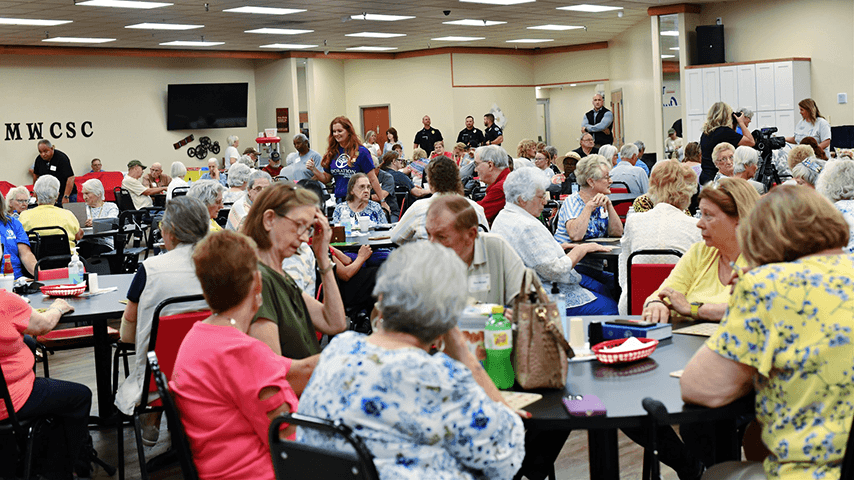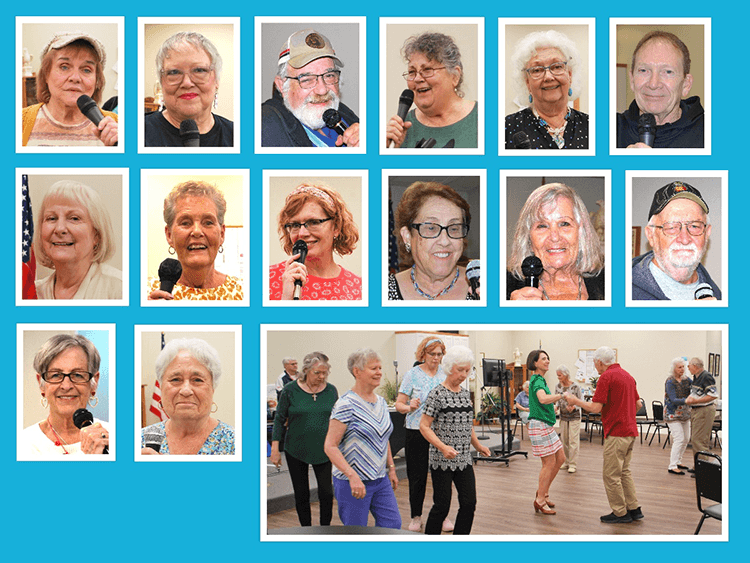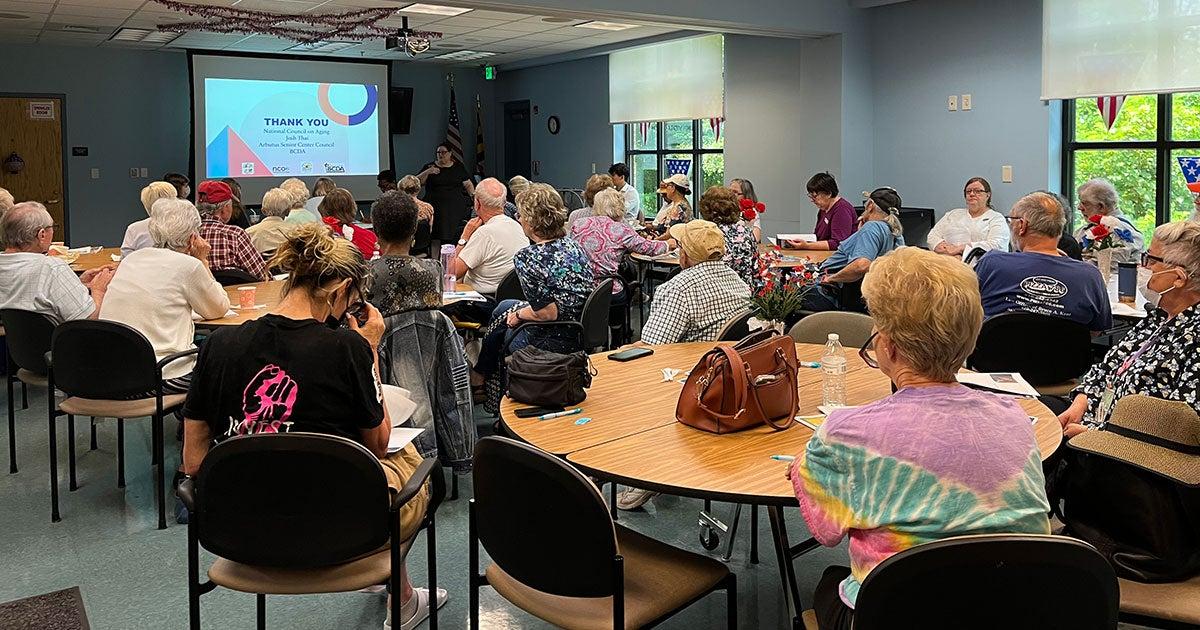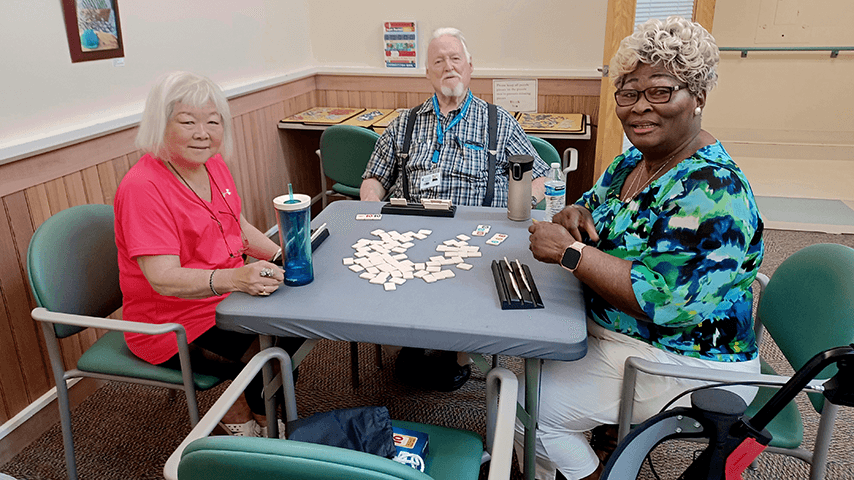Senior Center Spotlight: McMinnville Part of a Vibrant Community Hub
4 min read

In a region of Tennessee defined by its farmland, small towns, and tight-knit communities, the McMinnville-Warren County Senior Center is a vital resource for connection, support, and aging well.
What is the history of the McMinnville Senior Center?
Serving older adults since 1984, the McMinnville Senior Center evolved over the years to meet the needs of the community.
When Lana Hillis became director in 2019, the center had 453 members and limited engagement. It operated from a small building on the outskirts of town and offered a handful of activities that were not always well-attended. Hillis made it her mission to raise awareness of what the center could offer and to build programs that reflected the real needs of older adults in a rural setting—especially around health, social connection, and nutrition.
As participation steadily grew, the center quickly outgrew its original space. With the support of a forward-thinking county executive, the center was relocated to a renovated section of a local mall purchased by the county. The new 17,000-square-foot space now houses the senior center alongside the health department and veterans services—creating a vibrant, accessible community hub.
What's unique about McMinnville Senior Center?
In rural communities, access to fresh and affordable food is a persistent challenge for many older adults. To address this, McMinnville Senior Center provides a farm to senior center program, supported by state senior center grant funding. Unlike the meal program served on-site, this initiative provides boxes of fresh, locally grown produce and meats directly to older adults to take home.
These food boxes are packed with seasonal fruits and vegetables, as well as high-quality local meats—helping seniors maintain healthy diets while supporting nearby farmers. It’s a practical, dignified way to increase food security and promote independent living in a rural area where grocery stores may be far and transportation is often limited.
A focus on nutrition, education, and connection
At the center itself, food continues to bring people together. Three days a week, over 200 hot, home-cooked meals are served to local seniors.
With 2,300 active meal recipients, the program has become a lifeline—especially for the 48% of members who report that it’s the only hot meal they receive each day.
The center also partners with the local Extension Office to provide hands-on nutrition and cooking classes, helping older adults make the most of their food resources and develop healthy habits at home.
Monthly Lunch and Learn sessions add an educational component to mealtimes. Local professionals—including first responders, financial advisors, and healthcare workers—join members over lunch to share important information and answer questions. Classes on CPR and dementia awareness have been especially popular.

Another popular program is Around the World, a monthly cultural experience that brings a different country to life through themed decorations, videos, music, and food. For each session, the center prepares a meal inspired by that country’s cuisine—for example, orange chicken and homemade egg rolls for China—and explores local customs, geography, and culture. The program is consistently filled to capacity and offers members a chance to explore the world without leaving their rural community.
McMinnville Senior Center is more than a building—it’s a place where people feel seen, valued, and connected. “Our members bring this place to life,” says Hillis. “We’ve had people tell us, ‘If it weren’t for this center, I wouldn’t be here.’ That’s how important it is.”
In a rural area where isolation is common and services are often spread thin, the center provides not only essential resources but also joy, purpose, and friendship. Whether it's a domino game, a nutrition class, or simply a warm meal and a familiar face, the McMinnville Senior Center helps older adults live well—right where they are.
How does state funding support McMinnville Senior Center?
Tennessee is one of the few states in the nation that provides significant state-level funding specifically for senior centers. This commitment reflects the state’s recognition of the essential role senior centers play in promoting health, independence, and quality of life—particularly in rural areas like Warren County.
Currently, the State of Tennessee, through the Department of Disability and Aging, has allocated $5 million in grant funding to support senior centers across the state. Individual centers can receive between $10,000 and $50,000 to support critical programming, expand access, and address local needs.
McMinnville Senior Center has directly benefited from this investment. The funding has supported innovative programs such as the Farm to Senior Center food box distribution initiative and expanded wellness and educational offerings. This level of state support is not only rare—it is transformative for communities seeking to improve the lives of older adults.
Still not a member of the National Institute for Senior Centers? Join today, membership is free.
If your center has completed a recent study or assessment or is trying out some new programming approaches, we’d love to hear about it. And if you haven't already, we'd encourage you to join the National Institute of Senior Centers (NISC). Free to all senior centers (and their personnel), NISC supports senior centers with best practices and innovations in programming, as well as networking and training opportunities. Find out how you can become a NISC Affiliate today.
Photos courtesy McMinnville Senior Center


